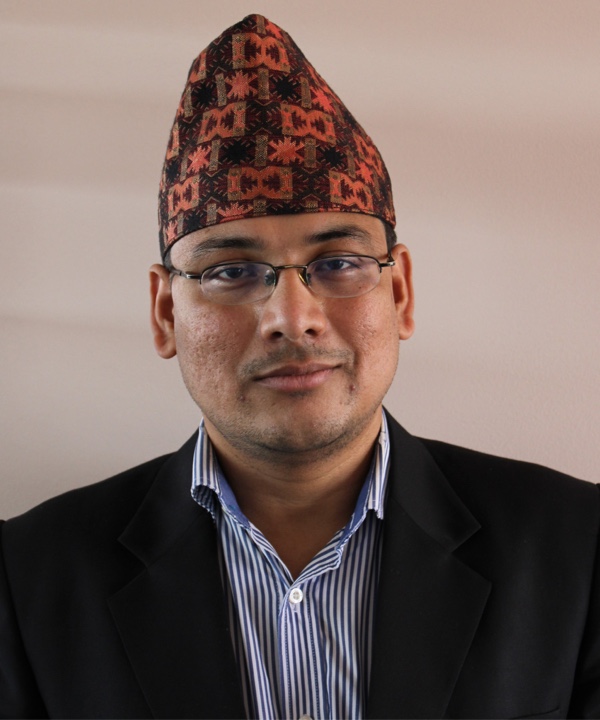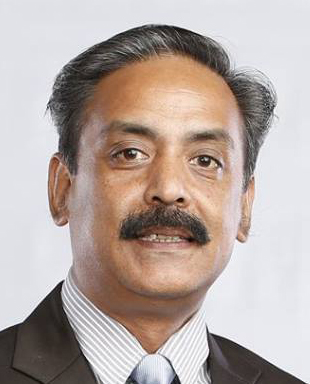Local people eager to welcome one more hydro-power related initiative in the electricity hub
Nuwakot, 19 July 2019. Nuwakot, a district with along history in hydro-power generation and popular as a hub of green energy, started a new discussion on a new electricity related project to be launched soon on 18 July 2019.

Representatives from various sectors in Nuwakot were exchanging information and opinion on the planned construction of an electricity transmission line and a sub-station, going to be implemented by Millennium Challenge Account Nepal (MCA-Nepal) under the Compact agreement between the Government of Nepal and Millennium Challenge Corporation (MCC) of the US government.
Almost 50 years ago, the first large scale hydro-power project in Nuwakot – Trishuli Hydro-power Station – was established, which was followed by Devighat Hydro-power Station, commissioned in 1984. Recently the construction works of the 37 MW capacity Upper Trishuli III B hydro-power project has been started in Kispang Village Municipality of Nuwakot. About a dozen of new hydro-power plants are going to join soon in its electricity generation drive making it an important hydro-power hub.
The Introductory workshop on the Electricity Transmission Project of MCA-Nepal was organized aiming to sensitize government agencies, people’s representatives and local stakeholders on the MCA-Nepal and its activities, and collect their perspective on the activities to be incorporated in Nuwakot.
The Chief Guest of the Program Narayan Prasad Khatiwada, a Member of Federal Parliament, said, “We cannot compromise with the development efforts in an endeavor to uplift the living standard of people, but it should not be at the cost of environment and people’s property. People should be justly compensated if we use their property for the project purpose.”

He further emphasized on the need of sharing all information regarding the project at once and not in piecemeal way, and requested to address the needs of directly and indirectly affected people. He also suggested to rent the land under Right of Way (RoW) instead of providing the owner one time compensation.
Drona Pokharel, the CDO of Nuwakot District, mentioned that the project should try to minimize the adverse impacts against local people in the course of its implementation, and provide adequate compensation to the affected people as per guidelines and laws of the land.
He added, “We should cooperate to complete the project in time so that we demonstrate our capacity and convince the international donor community in providing us with support for other large development projects in future.”
Highlighting on the Compact program, Khadga Bahadur Bisht, the Executive Director at MCA-Nepal, said, “It is a unique grant received from US Government for the economic growth of Nepal. Two projects – Electricity Transmission Project and Road Maintenance Project – have to be completed within five years using the grant of US $ 500 million, and before project enter into force, we have to achieve some mandatory conditions precedent.”

Talking on the electricity development and challenges in Nepal, Bisht shared the inter-relationship between electricity consumption and economy citing examples of Asian countries like Bhutan and Laos.
He mentioned that petroleum products are addressing the biggest chunk (60 %) of our modern energy need, and the portion of electricity is only 13 %. Stating the reality as an obstacle for the country’s economic development, he stressed on the need of infrastructure development for electricity development and distribution.
He informed the audience, “The 318 KM long 400 kV Lapsephedi-Ratmate-Hetauda and Ratmate-New Damauli-New Butwal electricity transmission lines are a part of the National Master Plan on Transmission Line and it will create a milestone in the context of electricity trading with the neighboring countries.”

Shedding light on environmental and social safeguard requirements and implementation timeline, Shyam Krishna Upadhyaya, Quality Assurance Manager– Environment, Health and Safety at MCA-Nepal, informed that different international and national policies were going to be followed for the environment and social protection activities.
According to him, the program has amended its preliminary alignment route of the transmission line significantly considering minimizing the impact on the natural and social environment as well as public and personal property.
Explaining components and status of Electricity Transmission Project to the audience, Sanjay Sharma, Project Manager-Sub Stations at MCA-Nepal, stated, “The project is constructing three sub-stations, and one of them will be at Ratmate in Nuwakot district. All of them will be Typical 400 kV Gas Insulated Substation (GIS). It will also be interfacing with existing substations of Nepal Electricity Authority at Hetauda and Lapsiphedi.”
Updating the participants on the progress, he mentioned, “We have consulted with local stakeholders in 30 municipalities, conducted geo-tech surveys for 60 locations and identified sites for New Butwal sub-station and New Damauli sub-station, while decision is pending for Ratmate with three options.”
Mr. Shiva Prasad Dhakal, ESP Specialist – Land Acquisition at MCA-Nepal, informed the program safeguarding policies of the project focus on protecting the people and environment and enhancing environment sustainability.
He added, “The program is assessing three options of sites for the construction of Ratmate Sub-Station currently, but it will start the process of land acquisition by the end of August and start to distribute compensation amount by the end of December.”
MPs of Province No. 3 Asha Maya Tamang, Keshab Raj Pandey and Dina Nath Khatiwada shed light on the importance of organizing public hearings at the local level to address any grievances, which would contribute towards the success of the project, and appealed to have a positive approach, create awareness and a conducive environment for the project.
Appreciating the information sharing initiative, participants suggested to use community forestland only if there is no alternative and to have minimum disturbance to the natural beauty of the surroundings. They also requested to prioritize partnership with local NGOs at the local level and to inform local people about the social benefits under the MCA partnership program. They also advised to consider the people living nearby the acquired land also while distributing compensatory benefits.

Ms. Shalini Tripathi, Deputy ED of MCA-Nepal, had welcomed the participants at the beginning of the program, and requested to take ownership of the project it being a national pride project of Nepal.
The workshop was participated by 46 local participants, representing various GOs, MPs and NGOs in Nuwakot.


Baikuntha Adhikari says:
hellow sir,
How you take land acquisition of Local People where Transmission line is going to build, and how you distribute the compensesation to local people whose land will cover by transmission line, please advise !
Karishma Thakur says:
Hello Mr. Adhikari,
Thank you for your query. You can find out more about Land acquisition information and compensation by contacting our local ESP-Community Assistant. We also have a local Public Information Center for all our working districts. Please write an email at info@mcanp.org if you have further questions.
Thank you.